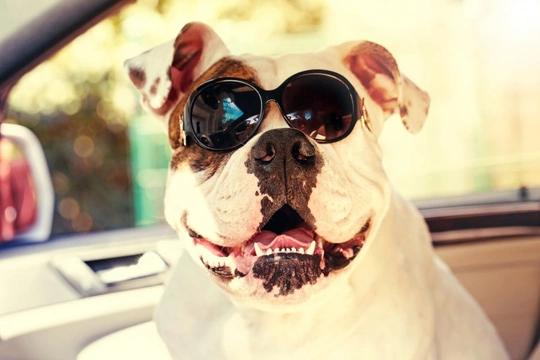
Six tips for protecting your dog from the sun
Summertime is one of the nicest times of year to spend time outside with your dog and your family, but it can also pose some challenges for the unwary British public when it comes to avoiding sunburn, protecting your skin and generally staying safe. Many people can’t seem to get through a single summer season without at least one bout of sunburn, and we all know how uncomfortable and painful that can be, while at the same time, it should also be totally avoidable!
You should also pay some mind to protecting your dog from the sun as well, as dogs can and do get sunburn just like people can, and also share the increased risk of skin cancers and other forms of melanoma from prolonged or regular unprotected exposure to the sun.
In this article, we will share six tips for protecting your dog from the sun, and keeping them safe from sunburn and other problems such as future skin cancers. Read on to learn more!
Judge how the sun will affect your dog
Some dogs are much more prone to sunburn than others, and it is important to know if your dog falls into their number. Dogs that have pink skin are more at risk than those with dark skin, and white fur also indicates a likely sun sensitivity too. Short, fine or single layered fur increases the risks of sunburn, and exposed areas like the skin of the nose, ears and other points where you can see the skin through the fur are more vulnerable as well.
While dogs with long, thick fur that is dark in colour are less likely to develop sunburn, it can still happen, and dogs with coats such as these are also at a higher risk of overheating in hot weather too.
Use a sunscreen
It might seem weird at first to consider using a sunscreen on your dog, but this is highly recommended, and today there are actually sunscreens available that are non-toxic and especially designed for dogs!
Invest in an appropriate sunscreen for your dog, particularly for use on sensitive areas such as the face and ears. Apply the sunscreen regularly throughout the day, and follow the manufacturer’s guidelines on safe exposure to the sun. Remember that playing in water such as a paddling pool will affect the effectiveness of the sunscreen, and that dogs can still get sunburn when in the water!
Get some shade
Dogs (and people) can and do catch the sun even in the shade, but providing a covered area that your dog can use to get out of the sun or ensuring that they can go inside will help to limit their exposure to the sun and keep them safer. Never keep your dog outside in full sun, and check them throughout the day when outside to ensure that they are not wilting or getting burnt.
Dress your dog
If your dog is going to go swimming or be out in the sun a lot and is at risk of sunburn, consider adapting an old t-shirt into a cover-up for your dog, to protect the bulk of their body from the sun. Soaking the t-shirt in cool water before putting it on them can help to cool your dog down, and ensure that wearing an extra layer does not cause them to overheat.
Cooling suits
You can buy specialist cooling suits or vests made to fit all shapes and sizes of dogs, which come in a variety of formats. Some of these suits are designed to hold cooling packs, while others need to be soaked in water before putting them on your dog. These suits can help to keep your dog cool and offer protection from the sun, but remember that when the cooling pack has warmed up or the water in the suit has dried out, you will need to remove or replenish the suit, as otherwise it will simply make your dog hotter as they are wearing an extra layer!
Cooling baths
Hosing your dog down with cool (not cold) water, or allowing them to paddle or lounge around in a paddling pool is a good way of keeping them cool, but will not provide them with any protection from the sun. Don’t lose sight of the fact that water can both cause your dog’s sunscreen to wear off faster, and also, give you a false sense of security about their sun protection.
If your dog does get burnt, bathing the burnt area in cool water or allowing your dog to paddle or sit in a cool bath can help with this, as can after sun products designed for use with dogs too.
If your dog does get a severe burn that includes blistering or scabs, you should take them along to the vet for treatment, as these may need an antibiotic cream to ensure that the wounds do not become infected.



